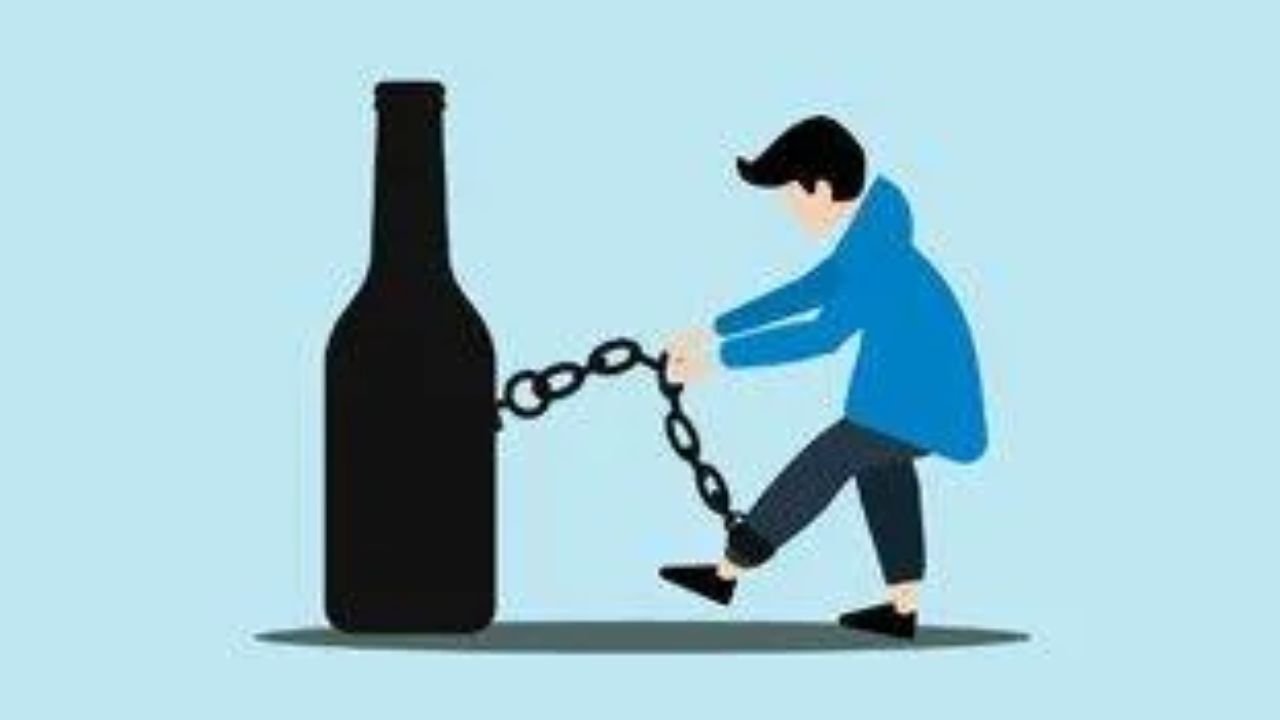Alcoholism, also known as alcohol use disorder (AUD), is a condition where an individual becomes dependent on alcohol, leading to physical and psychological issues. Understanding the warning signs of alcoholism is crucial, not only for those who may be struggling with it but also for loved ones who want to offer support. Recognizing these signs early can help prevent the progression of the disorder and facilitate timely intervention.
1. Increased Tolerance to Alcohol
One of the first signs of alcoholism is an increased tolerance. This means the person needs to drink more alcohol to feel the same effects they once felt after drinking smaller amounts. For example, they may find themselves drinking larger quantities to get the same buzz, and over time, this can escalate into drinking at dangerous levels. A person with a high tolerance may not realize the extent of their dependence until they try to reduce their intake and find it difficult.
2. Inability to Control Drinking Habits
People with alcohol addiction often experience a loss of control over their drinking. They may promise themselves or others that they will limit their drinking but still end up consuming excessive amounts. This inability to stop drinking, even when they want to, is a key indicator of alcoholism. The feeling of being “out of control” or unable to adhere to self-imposed limits is a significant red flag.
3. Drinking Alone or in Secret
Another warning sign of alcoholism is the tendency to drink alone or in secret. While social drinking is common, someone struggling with alcohol addiction may prefer to drink when they are by themselves, often to avoid judgment or concern from others. Secretive drinking may also reflect a desire to hide the true extent of their alcohol consumption. If someone consistently makes excuses for drinking alone or tries to hide bottles of alcohol, it could point to an unhealthy relationship with alcohol.
4. Prioritizing Alcohol Over Responsibilities
As alcoholism develops, individuals may begin to neglect important responsibilities such as work, school, or relationships. They may repeatedly call in sick, show up late, or underperform at their job due to hangovers or the need to drink. Personal relationships may also suffer as the person prioritizes drinking over spending time with loved ones or fulfilling family obligations. If someone consistently chooses drinking over their commitments, it’s a clear sign that alcohol is taking precedence in their life.
5. Increased Risky Behavior
Excessive drinking frequently results in risky behaviors, such as driving under the influence (DUI), engaging in unsafe sexual practices, or getting into physical altercations while intoxicated. A person struggling with alcoholism may be more likely to make poor decisions, as alcohol impairs their judgment. These risky behaviors not only endanger the individual but can also pose serious risks to others.
If you find yourself or someone you know caught in this cycle, it’s essential to recognize these patterns early. If you’ve been arrested for DUI in Salt Lake City, consulting a qualified DUI lawyer can help guide you through the legal process and address the underlying issues.
6. Developing a Physical Dependence
Physical dependence on alcohol is one of the most serious signs of alcoholism. Over time, the body can become reliant on alcohol to function, leading to withdrawal symptoms when alcohol is not available. These symptoms can range from mild anxiety or irritability to more severe manifestations like shaking, sweating, nausea, or even seizures. If someone experiences physical withdrawal symptoms when they attempt to stop drinking or reduce their intake, it is a strong indication that they have developed a dependency on alcohol.
7. Using Alcohol to Cope with Emotions
Many individuals with alcoholism use alcohol as a way to cope with stress, anxiety, depression, or other emotional issues. They may drink to numb their feelings or avoid confronting personal problems. While this might provide temporary relief, using alcohol as an emotional crutch only reinforces the cycle of addiction. If someone turns to alcohol regularly to cope with their emotions, it is a sign that they may be developing an unhealthy relationship with drinking.
8. Neglecting Personal Appearance and Hygiene
When alcohol takes priority in someone’s life, they may begin to neglect their physical appearance and hygiene. This can manifest as a lack of concern for grooming, wearing the same clothes repeatedly, or neglecting basic self-care. If you notice a person who once took pride in their appearance beginning to overlook their hygiene or cleanliness, it could be a warning sign of alcohol dependence.
9. Experiencing Memory Blackouts
Memory blackouts, also known as “brownouts,” are another red flag of alcohol addiction. When someone drinks heavily, they may forget large portions of the evening or the events that took place while they were intoxicated. This can be a sign that the brain is being impacted by the excessive consumption of alcohol. Frequent blackouts or memory lapses are concerning signs that alcohol is affecting a person’s cognitive function.
10. Neglecting Health Issues Related to Drinking
Long-term alcohol abuse can have severe health consequences, including liver disease, heart problems, and digestive issues. Someone with alcoholism may ignore these health problems, brushing them off as temporary or unimportant. They may continue to drink despite experiencing negative effects on their health, which is a key characteristic of addiction. If someone is unwilling to seek help for health problems related to alcohol consumption, it shows that alcohol is taking precedence over their well-being.
In Conclusion
Recognizing the warning signs of alcoholism is essential for early intervention and support. If you or someone you know is exhibiting any of these signs, it may be time to seek professional help. Alcohol addiction is a serious condition that can affect every aspect of a person’s life, but with the right treatment and support, recovery is possible. If you suspect alcoholism, don’t wait for the situation to worsen—reach out to a healthcare provider or addiction specialist to take the first step toward recovery.











